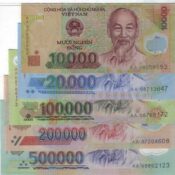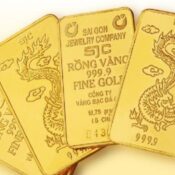Legendary heroes: King Quang Trung – farmer hero and his great victory against Chinese invaders

Legendary heroes: King Quang Trung – farmer hero and his great victory against Chinese invaders
The Battle of Ngoc Hoi – Dong Da (or Victory of the Rooster) is the name given by Vietnamese historians to the series of victorious battles against foreign invaders of Dai Viet during the Tay Son period led by King Quang Trung at the beginning of the year 1789, defeated the Manchu Qing army commanded by Ton Si Nghi – pulled across the border and flooded into Dai Viet territory due to the help of King Le Chieu Thong of the Later Le Dynasty.
- The history.
At the end of the 18th century, in a situation where the country was in turmoil, in Dang Ngoai Lord Trinh dominated King Le; In Dang Trong, the Nguyen lords declined, traitors prevailed, and people’s lives fell into misery. In 1771 the Tay Son peasant uprising under the leadership of Tay Son leaders: Nguyen Nhac, Nguyen Hue, Nguyen Lu was popular with many people from all walks of life, heroic heroes, scholars, and a patriotic response. The uprising quickly developed into a large national liberation movement on a nationwide scale, sweeping away all the injustice and corruption of feudal dynasties, smashing foreign invaders, unifying the country, opening ushered in a new era in the nation’s history.
The Qing court has long been planning to invade our country, but has not found a reason for aggression. Taking advantage of Le Chieu Thong’s action who came to China for “survival”, 290,000 Qing troops invaded our country. Facing the situation of internal enemies and external enemies, realizing the risk of invasion from the North, Nguyen Hue was crowned Emperor, took the reign name Quang Trung, and then quickly attacked the North. On January 15, 1789, Quang Trung’s army arrived at Tam Diep, Ninh Binh.
- The defense.
On New Year’s Eve 1789, the Tay Son army attacked and destroyed the Qing enemy at the forward post of Gian Khau. On the night of January 4 and 5, 1789, the Tay Son army advanced to capture Khuong Thuong. The enemy troops defending Khuong Thuong were completely destroyed. Qing Dynasty general Sam Nghi Dong hanged himself on Loa Son mountain. This battle opened the way for the Tay Son army to attack from Ngoc Hoi with the spirit of splitting bamboo straight into Thang Long.
With lightning-fast tactics, in just 5 days, the Tay Son army defeated 290,000 Qing troops, and the battles of Ngoc Hoi and Dong Da were the graves of the Qing army. Ton Si Nghi fled to the North. The remnants of the army heard that the general had fled and also broke up and followed, fighting to cross the bridge. At noon on the 5th day of Tet 1789, Emperor Quang Trung sat on the back of an elephant, leading a large army into the Imperial City in the joyful welcome of the people of Thang Long.
- Military art: Reasons for choosing Tam Diep.
In 1788, 290,000 Qing troops marched to Vietnam, with the excuse of destroying the Tay Son and rebuilding the Later Le Dynasty. Ngo Thi Nham used the strategy of choosing Tam Diep Pass as a military base to stop the Qing army. Accordingly, Ngo Van So, Phan Van Lan, and Ninh Ton withdrew their troops from Thang Long to Tam Diep. This is a place with a rather dangerous location, majestic mountains like a wall between the two regions. The continuous hills, mountains and valleys formed a solid block blocking the North-South, helping Nguyen Hue attack, advance and retreat, save money, hide troops so that in the spring of 1789, they marched to the capital city of Thang Long, wiped out 200,000 Qing troops, and wrote a page in history glory of the Vietnamese people.

- The end.
The victory of Ngoc Hoi – Dong Da affirmed the great military art of the Tay Son insurgent army, especially the military genius of Emperor Quang Trung – Nguyen Hue. That is the art of moving troops quickly from Phu Xuan to the North, and the art of warfare and strategy in each battle. With this great victory, our people under the genius leadership of Emperor Quang Trung crushed the Qing army’s dream of invasion, liberated the country, and maintained national independence. Promoting the spirit of the Tay Son insurgent army, urging each cadre, party member and people to overcome difficulties and challenges to strive and build the homeland, the country is increasingly richer and more beautiful, worthy of the great contributions, burning aspirations and noble sacrifices of previous generations.








